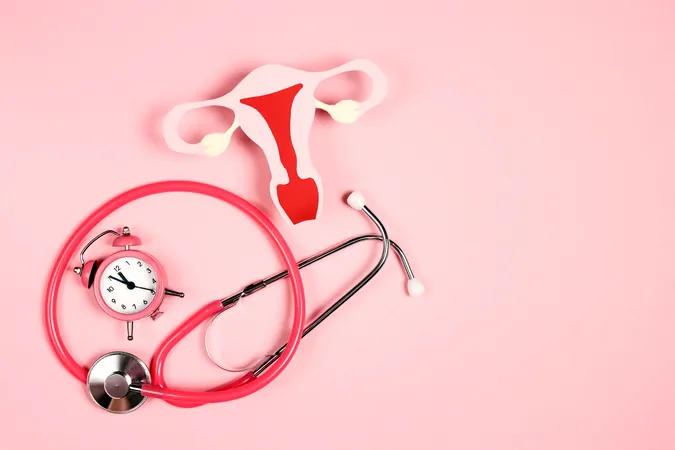
Groundbreaking Study: Vaginal Estrogen Tablets Pose No Stroke Risk for Postmenopausal Women!
2025-08-21
Author: Siti
No Increased Stroke Risk with Vaginal Estrogen
In a groundbreaking revelation, recent research published in the journal *Stroke* has confirmed that vaginal estrogen tablets do not heighten the risk of recurrent ischemic strokes in postmenopausal women. This is a significant finding, especially considering that systemic estrogen therapies are currently off-limits for women with a history of ischemic strokes due to safety concerns.
Dr. Kimia Ghias Haddadan from Copenhagen University Hospital stressed the importance of this study. Previously, it was known that systemic hormone replacement, particularly oral estrogen, could increase stroke risks after menopause. However, there was little understanding of how vaginal estrogen might affect women who had already suffered a stroke.
Exploring the Unknown: The Research Background
Evidence has long suggested that hormone therapy, whether estrogen alone or combined with progesterone, can elevate stroke risk, particularly in older women. A review in *Climacteric* pointed out that while the absolute risk is rare for standard-dose hormone therapy, it becomes significantly greater for older patients.
In response to these concerns, researchers set out to fill the knowledge gap surrounding the safety of vaginal estrogen for women with a stroke history. By analyzing data from national registries in Denmark, the study included over 34,000 women who had experienced an ischemic stroke between 2008 and 2017.
Key Findings: No Link Between Vaginal Estrogen and Stroke Recurrence
The results were eye-opening. Among the study group, only 1.9% of women who suffered another stroke were using vaginal estradiol tablets, compared to 3.2% in the non-recurrent group. Even when considering different dosages, no significant relationship was found between the use of vaginal estradiol and recurrent strokes.
Expert Opinion: A Cautious Optimism
Dr. Samar R. El Khoudary from the University of Pittsburgh highlighted the value of this study, particularly for midlife women who are often sidelined in hormone therapy discussions. While the findings are reassuring, she urged caution in interpretation since real-world data may not capture all clinical nuances.
This emerging research not only sheds light on an avenue often overlooked but also raises further questions worthy of investigation. As medical communities seek to balance the benefits and risks associated with hormone therapies, studies like this are invaluable.



 Brasil (PT)
Brasil (PT)
 Canada (EN)
Canada (EN)
 Chile (ES)
Chile (ES)
 Česko (CS)
Česko (CS)
 대한민국 (KO)
대한민국 (KO)
 España (ES)
España (ES)
 France (FR)
France (FR)
 Hong Kong (EN)
Hong Kong (EN)
 Italia (IT)
Italia (IT)
 日本 (JA)
日本 (JA)
 Magyarország (HU)
Magyarország (HU)
 Norge (NO)
Norge (NO)
 Polska (PL)
Polska (PL)
 Schweiz (DE)
Schweiz (DE)
 Singapore (EN)
Singapore (EN)
 Sverige (SV)
Sverige (SV)
 Suomi (FI)
Suomi (FI)
 Türkiye (TR)
Türkiye (TR)
 الإمارات العربية المتحدة (AR)
الإمارات العربية المتحدة (AR)